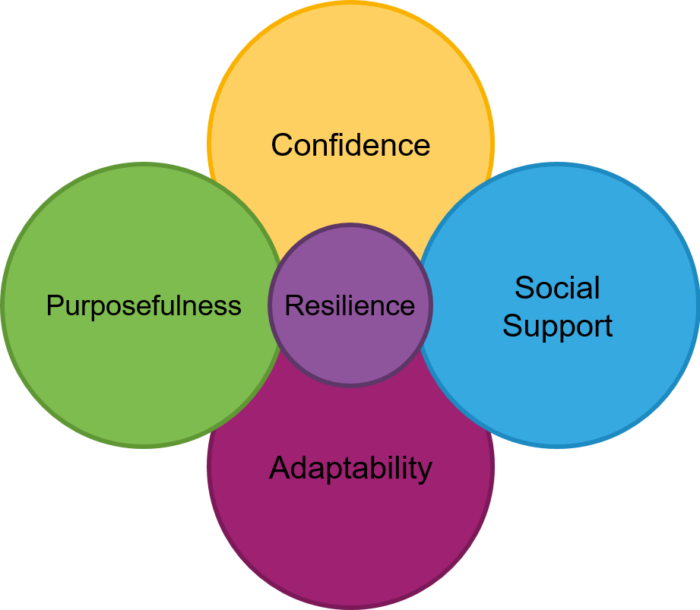Personal Resilience
Delivering results can be demanding and the ability to be resilient is a key competence for people involved in the activity.
There may be knock backs, barriers, demanding deadlines or other issues to contend with during an initiative.
This model shows four key components of resilience, to highlight the aspects to consider when faced with challenges.

Source: OD&PL, Robertson and Cooper, 2012.
Confidence: Having feelings of competence, effectiveness in coping with stressful situations and strong self esteem are inherent to feeling resilient. The frequency with which individuals experience positive and negative emotions is also key.
Social Support: Building good relationships with others and seeking support can help individuals overcome adverse situations rather than trying to cope on their own.
Adaptability: Flexibility and adapting to changing situations which are beyond our control are essential to maintaining resilience. Resilient individuals are able to cope well with change and their recovery from its impact tends to be quicker.
Purposefulness: Having a clear sense of purpose, clear values, drive and direction helps individuals to persist and achieve in the face of setbacks.
Hints & Tips
The following questions are useful as a check-list at the start of an initiative and will help prior to the commencement and throughout delivery:
- How will we maintain our confidence or restore it if it dips?
- Where will our social support come from?
- How will we ensure we try and remain adaptable?
- How can we maintain our focus during the life of the initiative?
- How can the team support each other through a change?
